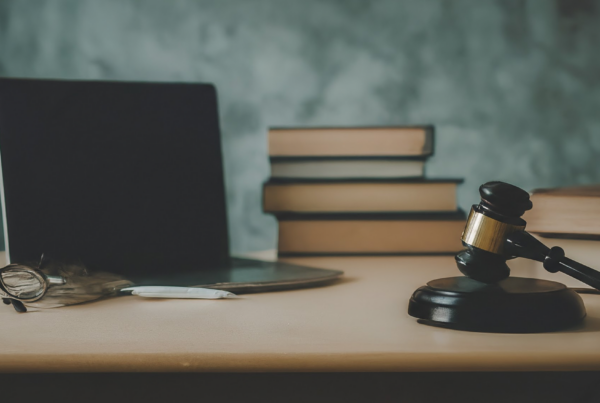In the dynamic world of hospitality and entertainment, businesses are constantly seeking innovative ways to captivate their audiences and enhance customer experiences. Offering commercial video programming is a powerful tool to achieve this goal, yet understanding the legal aspects of commercial video programming is crucial for success. Navigating this complex legal landscape is not just beneficial—it’s essential for compliance and avoiding costly pitfalls.
Whether you’re running a bustling casino, a cozy restaurant, or a vibrant bar, knowing the ins and outs of licensing agreements and copyright laws can make a significant difference. For businesses in the hospitality industry, providing top-notch entertainment isn’t merely an added perk; it’s a strategic necessity. However, the intricacies of these legal requirements can be daunting.
At DLM Media, we specialize in helping businesses seamlessly integrate commercial video programming into their operations. Our expertise ensures that your establishment not only delivers exceptional entertainment but also remains compliant with all necessary legal standards. This blog post will delve into the key legal considerations every business should be aware of, from understanding licensing agreements to navigating copyright issues.
Join us as we explore these essential topics and equip your business with the knowledge needed to thrive in a competitive market. By understanding and implementing these legal insights on commercial video programming, you’ll be able to transform compliance into a strategic advantage. Let’s dive into the nuances of licensing and discover how they impact your choice of entertainment solutions.
Understanding Licensing Agreements in Video Programming
Licensing agreements are the backbone of legal compliance in commercial video programming. These agreements grant businesses the legal right to display copyrighted content, such as movies and TV shows, within their establishments. For businesses in the hospitality and entertainment sectors—like casinos, restaurants, and bars—understanding these agreements is not just beneficial; it’s essential to avoid significant legal and financial repercussions.
Non-compliance with licensing requirements can lead to severe penalties, including hefty fines and potential lawsuits. Therefore, businesses must familiarize themselves with the various types of licenses required for commercial video programming. This section will explore the different licensing agreements necessary for legal compliance and the consequences of failing to adhere to these regulations.
Types of Licensing Agreements
Understanding the types of licensing agreements is crucial for businesses offering commercial video programming. The most common licenses include:
- Public Performance Licenses: These licenses allow businesses to publicly display copyrighted content, such as music and movies. Organizations like ASCAP, BMI, and SESAC manage these licenses, ensuring that creators receive compensation for the use of their work.
- Synchronization Licenses: Required when pairing video content with music, synchronization licenses are essential for businesses creating custom video content for their venues.
- Blanket Licenses: These comprehensive licenses cover a wide range of content, providing a more extensive solution for establishments with diverse programming needs.
Implications of Non-Compliance
Failing to comply with licensing agreements can have dire consequences. Non-compliance may result in legal action, including lawsuits and substantial fines. For example, a popular restaurant chain faced a lawsuit for unauthorized public performances of copyrighted music, leading to significant financial penalties and damage to its reputation.
Beyond financial repercussions, non-compliance can harm a business’s reputation, resulting in a loss of customer trust and loyalty. It’s crucial for businesses to regularly review and update their licensing agreements to ensure they remain compliant with current laws and regulations.
Case Studies: Learning from Others
Examining real-world examples can provide valuable insights into the importance of compliance. Consider the case of a well-known bar that failed to update its licensing agreements as new content was added to its programming lineup. This oversight led to unauthorized use of copyrighted material, resulting in legal action and financial loss.
Conversely, a proactive approach can safeguard businesses from such pitfalls. A renowned casino chain implemented a comprehensive compliance strategy, ensuring all content was properly licensed. This not only protected the business from legal action but also enhanced its brand image as a trustworthy and responsible entity.
For businesses seeking to navigate the complexities of licensing agreements, consulting with legal experts and regularly reviewing agreements is essential. By doing so, they can avoid costly legal issues and focus on delivering exceptional entertainment experiences to their customers.
Navigating Copyright Issues in Video Programming
In the realm of commercial video programming, understanding copyright issues is crucial for businesses in the hospitality and entertainment sectors. Copyright laws protect the intellectual property rights of creators, and businesses must navigate these laws to avoid legal pitfalls. Respecting these rights not only ensures compliance but also fosters a culture of integrity and respect for creative works.
One of the primary challenges businesses face is distinguishing between copyrighted and public domain content. While copyrighted content requires permission or licensing for use, public domain content is free to use without restrictions. Understanding these differences is essential for businesses to make informed decisions about the content they display.
Understanding Copyrighted vs. Public Domain Content
Copyrighted content is protected by law, granting the creator exclusive rights to its use and distribution. This includes movies, TV shows, music, and more. Businesses must obtain the necessary licenses to use such content legally. Failure to do so can result in legal action and financial penalties.
In contrast, public domain content is not protected by copyright laws, either because the copyright has expired or the creator has waived their rights. This content can be used freely, providing businesses with a cost-effective alternative for their programming needs.
| Aspect | Copyrighted Content | Public Domain Content |
|---|---|---|
| Legal Protection | Protected by copyright laws | No copyright protection |
| Usage Rights | Requires permission or licensing | Free to use without restrictions |
| Examples | Movies, TV shows, music | Classic literature, government works |
Legal Implications of Copyright Infringement
Copyright infringement occurs when copyrighted material is used without permission. This can lead to severe legal consequences, including lawsuits and substantial fines. For example, a bar that plays copyrighted music without a license could face legal action from rights holders, resulting in significant financial losses and reputational damage.
To avoid these issues, businesses should work with legal experts to ensure all content is properly licensed. Regular audits of programming content can help identify potential infringement risks and ensure compliance with copyright laws.
Strategies to Avoid Copyright Issues
Businesses can implement several strategies to navigate copyright issues effectively. First, securing comprehensive licenses for all content is essential. Working with performing rights organizations (PROs) such as ASCAP, BMI, and SESAC can help businesses obtain the necessary permissions for public performances.
Additionally, businesses should establish a compliance training program for employees. Educating staff about copyright laws and the importance of respecting intellectual property rights can minimize the risk of infringement. By fostering a culture of compliance, businesses can protect themselves from legal challenges and focus on delivering engaging entertainment experiences.
For more insights on navigating copyright issues in video programming, explore additional resources on DLM Media’s website.
Ensuring Compliance in Commercial Video Programming
In the realm of commercial video programming, ensuring compliance is not just a legal obligation but a strategic necessity for businesses in the hospitality and entertainment sectors. By adhering to legal standards, businesses can avoid costly pitfalls and enhance their reputation as responsible and reliable providers of entertainment. This section outlines best practices for ensuring compliance, drawing on industry standards and successful strategies employed by competitors.
Compliance with legal standards involves understanding and implementing the necessary measures to protect your business from potential legal issues. From securing appropriate licenses to conducting regular audits, businesses must adopt a proactive approach to compliance. By doing so, they can not only protect themselves from legal challenges but also build trust with customers and stakeholders.
Best Practices for Compliance
Adopting best practices for compliance is essential for businesses offering commercial video programming. Here are some key strategies to consider:
- Conduct Regular Legal Audits: Regular audits help identify potential compliance gaps and ensure that your business adheres to all relevant regulations. Engage with legal experts who specialize in copyright and licensing laws to conduct these audits.
- Secure Appropriate Licenses: Obtaining the right licenses is crucial for legal compliance. Ensure that your licenses cover all the content you intend to display and regularly review and update them to accommodate new programming additions.
- Implement a Compliance Training Program: Educate your staff about the importance of adhering to copyright and licensing laws. A well-structured training program can minimize the risk of non-compliance and foster a culture of compliance within your organization.
Benefits of a Proactive Compliance Approach
Taking a proactive approach to compliance offers numerous benefits for businesses:
- Risk Mitigation: By addressing compliance issues proactively, businesses can avoid legal disputes and financial penalties, safeguarding their reputation and financial standing.
- Enhanced Reputation: Compliance with legal standards demonstrates your commitment to ethical business practices, enhancing your reputation as a trustworthy and reliable provider of entertainment.
- Customer Trust and Loyalty: By ensuring compliance, businesses can build trust with customers and stakeholders, leading to increased loyalty and long-term success.
Competitor Strategies for Successful Compliance
Learning from competitors can provide valuable insights into effective compliance strategies. For example, a renowned casino chain implemented a comprehensive compliance strategy, ensuring all content was properly licensed. This proactive approach not only protected the business from legal action but also enhanced its brand image as a trustworthy and responsible entity.
Conversely, a popular bar faced legal action due to unauthorized use of copyrighted material, resulting in financial loss and reputational damage. This highlights the importance of regularly reviewing and updating licensing agreements to ensure compliance with current laws and regulations.
For more insights on ensuring compliance in commercial video programming, explore additional resources on DLM Media’s website.
Maximizing Success Through Legal Compliance
In the competitive landscape of hospitality and entertainment, understanding the Legal Aspects of Commercial Video Programming is not merely a legal obligation but a strategic advantage. By ensuring your business adheres to these legal standards, you can avoid potential pitfalls and enhance your reputation as a responsible provider of entertainment. This commitment to compliance can transform your business’s legal obligations into a powerful asset that builds trust with customers and stakeholders.
The key to leveraging compliance lies in understanding the critical components of licensing agreements and copyright laws. Regular audits and securing appropriate licenses are essential steps to ensure all content is legally used. By implementing a comprehensive compliance strategy, businesses can safeguard against legal actions and financial penalties while enhancing their brand image.
Key Takeaways:
- Conduct Regular Audits: Identify potential compliance gaps and address them proactively with the help of legal experts.
- Secure Comprehensive Licenses: Ensure all video content has the necessary licenses to prevent unauthorized use and legal issues.
- Implement Compliance Training: Educate staff on copyright and licensing laws to minimize risks and foster a culture of compliance.
By turning legal compliance into a strategic advantage, businesses can solidify their reputation and build lasting customer relationships. We invite you to review your current compliance strategies and explore additional resources on DLM Media’s website. This proactive approach not only protects your business but also positions it as a leader in the industry.
Ready to take the next step? Review your compliance strategies today and discover how legal adherence can become a catalyst for your business success.





